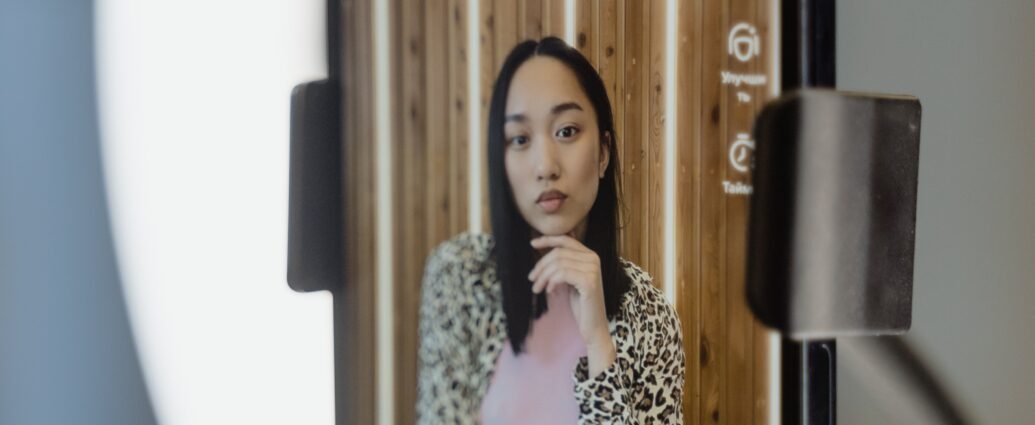Genevieve Gunn
Gone are the days’ filters were used solely for tweaking a photo’s colour balance, shifting the hues from dull to bright, or getting rid of those pesky light glares that forever seek to ruin the quality of an image.
Filters have taken up a new identity in the past decade. We have seen the transition from ‘vivid warm’ on the camera app – for all you iPhone users out there – to ‘M5’ on VSCO. From the ‘dog filter’ on Snapchat – if you know, you know – to a million different ‘sparkle’ filters on Instagram.
Bold Glamour
Instagram and Snapchat were arguably the biggest contenders on the filter scene, allowing users to make and upload their designs for all to use – that was until TikTok began its reign of world domination.
Many creators have used filters in their clips, whether that be to change their hair – perhaps give themselves bangs – make their eyes a lighter colour or even put on a layer of makeup.
“How many of these are geared towards women?”
If you have some spare time today, have a look at the trending filters on the app. How many of them are beauty filters? How many of them give you longer lashes, a thinner nose and fuller, bigger lips? But, most importantly – how many of these are geared towards women?
Talks about the problematic nature of filters have circulated online for a while now, but with the recent release of ‘Bold Glamour’ on TikTok, these conversations have come to the forefront of the app.
“I tried the filter on myself and to summarise my reaction to the filter – it was scary.”
Whilst a quick search will bring you to many people appearing to praise the filter for making them appear prettier and more attractive, you will also find others talking about how they feel like it makes them appear uglier and more masculine – which isn’t necessarily a bad thing.
It’s clear this filter has been designed to suit a small range of faces. It is not designed for those who do not fit conventional beauty standards. I tried the filter on myself and to summarise my reaction to the filter – it was scary.
The Problem
“It leaves you staring at the reflection of a person who only slightly resembles you”
The way Bold Glamour changes your face is shocking. It leaves you staring at the reflection of a person who only slightly resembles you.
My skin was smoother as if it had been photoshopped to the high heavens. My lips were twice the size they normally are and it looked as if I had a full face of makeup on – from the blush, to the contour and even to the eyebrows.
The widespread use of this filter will only further the unrealistic Western beauty standards women are forced to adhere to every single day.
“They will bear the brunt of this pressure to look a certain way.”
But what concerns me the most isn’t the adult viewers who will see this filter – they will be able to decipher these edited images and filters – I worry for the young people who see this. Young people are vulnerable and easily influenced by what they see online. They will bear the brunt of this pressure to look a certain way.
I can certainly say, growing up with social media had a massive impact on the way that I viewed myself, especially the way my face looked.
67% of 18–19-year-olds in the US use TikTok, so there lies genuine grounds for users to be nervous about the impact of these distorting filters.
Some responsibility lies with TikTok to prevent more adolescents from adopting a negative body image as a result of these morphing filters.
The paradox of women and age
We don’t need young people feeling as though they need to change themselves to feel loved and worthy, especially with the rise of perfectionism and plastic surgery. They are still growing and need time to come into their own faces – they shouldn’t have to feel as though their appearance is wrong, or that they need to look older and “mature”.
It only takes a walk down the skincare aisle to see the alarming number of ‘anti-wrinkle’ and ‘anti-ageing’ creams”
On the other hand, for many adults, this filter rids you of any natural lines and wrinkles that you might have. Features deemed to be imperfections by the beauty industry. Something you need to cover up.
It only takes a walk down the skincare aisle to see the alarming number of ‘anti-wrinkle’ and ‘anti-ageing’ creams continuously marketed to us from the moment we hit twenty. Women are made to exist in this paradox of being told they look too young as an adolescent and then as an adult – they look too old.
It leaves me questioning – when, if ever, is it okay for women to exist in their own bodies without judgement or shame by others online?
Featured image courtesy of Mart Production via Pexels. License can be found here. No changes were made to this image.

